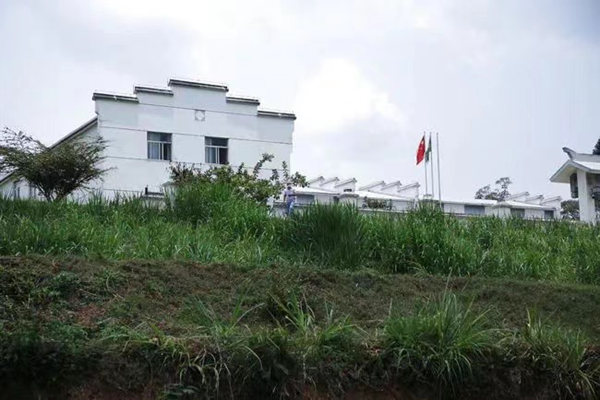Rwanda sees booming edible fungi industry backed by Chinese agricultural tech
"The Juncao technology is flourishing in Rwanda. It is my greatest achievement to see the smiling faces of local farmers and win their appreciation," Zhu Su, a Chinese agricultural specialist at an agricultural aid project in Rwanda, said with delight in an interview with the Xinhua News Agency.
Juncao, invented by Chinese scientists, is an economical and environmentally friendly substitute for timber that can be used as a substrate for growing mushrooms.
Zhu came to Rwanda in 2012 with the mission of edible fungi research and promotion at the China-aided Agricultural Technology Demonstration Center in Huye, a city in Rwanda's Southern Province, just one year after the center officially opened.
The demonstration center has been working on four projects, namely the Juncao project, rice technology project, soil and water conservation project, and sericulture project, Zhu said.
"With the Juncao project alone, we have trained more than 5,000 agricultural technicians and farmers in Rwanda, and mushroom production has become an important industry in Rwanda's economic development," he said.
Many Rwandan farmers have embarked on growing mushrooms in the country, and they have mastered the technology and know the market well, which enables them to reap both economic and social benefits, according to Zhu.
"Farmers are able to make money by growing mushrooms which in turn become nutritious and tasty food on people's dinner tables," Zhu said, "We always want to make our scientific research findings accessible to local people, to commercialize them and bring benefits to people."
The reason behind the wide application and recognition of Juncao technology in Rwanda is food safety and protein content, and mushrooms grown with Juncao technology have a higher protein content, Zhu explained.
The project also created jobs. A 32-year-old female worker, who makes Juncao packs at the demonstration center, said, "The salary here is four times that of my previous job, and I'm able to support my family now."
Zhu said he is about to return to China. When asked whether he is worried about the Juncao project after he leaves, he said, "I'm not worried at all, as the technology in Rwanda is mature, fully localized and market-oriented, this project will absolutely get better."
Patrick Karangwa, director-general of Rwanda's Agriculture and Animal Resources Development Board, said that considering the challenges faced by the country's agriculture, Rwanda is committed to technology application and innovation in a bid to enhance production capacity of small plots of land and promote high-value agricultural products.
Since Juncao technology is low-cost and can be easily applied with local materials, it has been prioritized by the Rwandan government in its innovation initiative.
Before the introduction of Juncao technology, many people probably couldn't imagined that growing mushrooms could help them get rid of poverty, Karangwa said. In addition to its role in job creation, food security, and increased incomes, the technology has also played an active part in addressing malnutrition among Rwandans, he added.

The China-aided Agricultural Technology Demonstration Center and the edible fungi breeding test field in Huye, Rwanda.

Follow us on WeChat
京ICP备18041594号-1
京公网安备 11010202005508号

Follow us on WeChat


